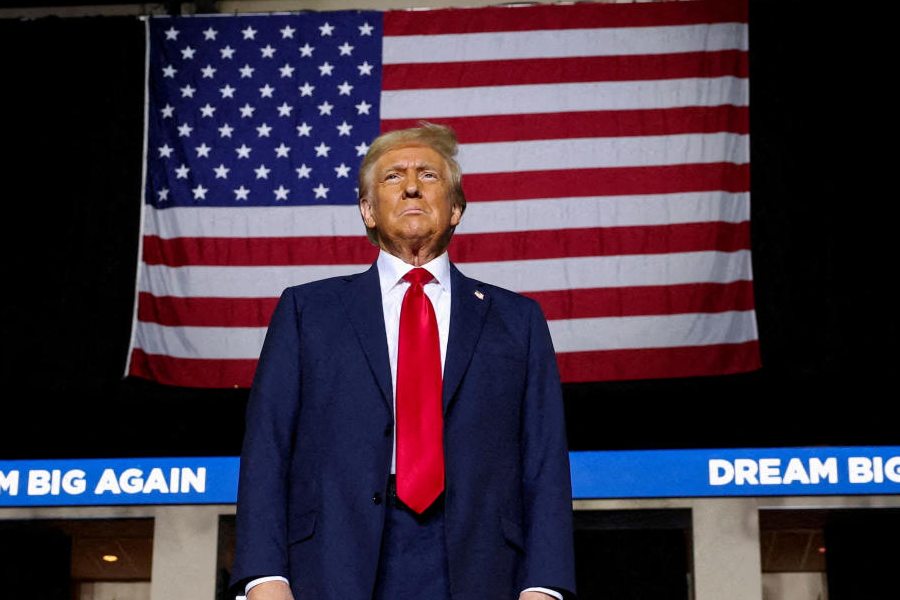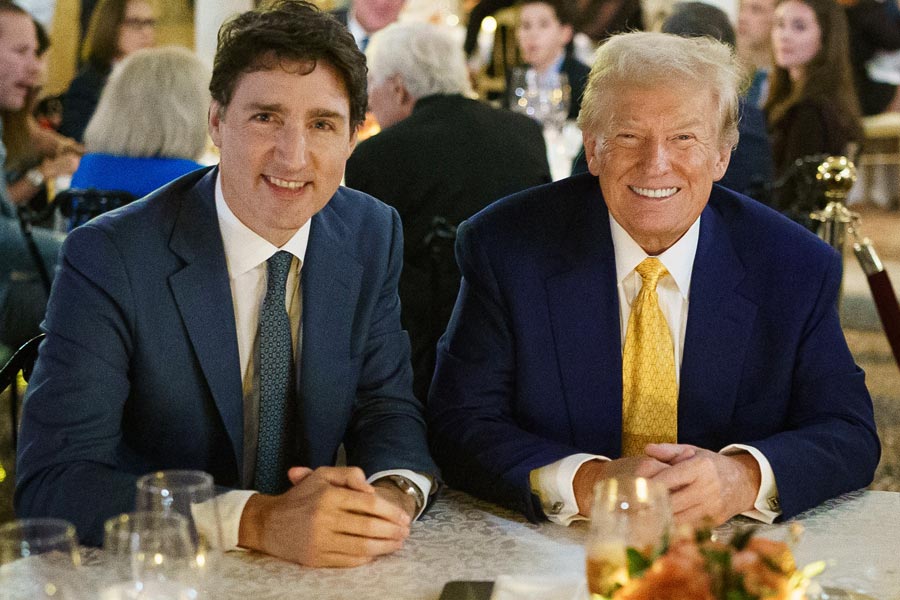President-elect Donald Trump is planning a blizzard of more than 25 executive orders and directives on his first day in office on Jan. 20 as he seeks to dramatically reshape U.S. government policy on issues from immigration to energy.
Two sources familiar with the effort said Trump has told his team he wants to make a "big splash" with the Day One orders, looking to exert his executive power with greater scale and speed than he did during his first term. The number of planned orders has not been previously reported.
The Republican issued only a handful of such orders on the first day of his 2017-2021 presidency. In contrast, Democratic President Joe Biden issued 17 executive orders on his first day in office in 2021, many of which were aimed at rolling back Trump's policies.
"The American people can bank on President Trump using his executive power on day one to deliver on the promises he made to them on the campaign trail," Trump spokesperson Karoline Leavitt said when asked about the executive order plans.
U.S. presidents frequently issue executive orders to make good on campaign pledges and quickly establish their policy objectives without going through the lengthy process of getting legislation through Congress. The orders can be subject to court challenges, however, and typically any money set aside to carry out the mandates of the orders has to be approved by Congress.
One of the sources familiar with the Trump team's plans said there was recognition internally that each action required an enormous amount of coordination among the affected government agencies, potentially slowing things down and reducing the overall number of Day One orders.
More orders and directives will be issued in the days and weeks afterward, the sources told Reuters.
The effort is being coordinated by Stephen Miller, a long-time Trump aide who will be a top White House adviser when Trump begins his second term, four sources said.
The Trump team is working from lists of draft orders provided by groups such as the America First Policy Institute, a think tank founded in 2021 to promote Trump policies and ideas, as well as the Conservative Partnership Institute and the Heritage Foundation, two other right-leaning organizations.
FIRST WAVE
Trump's post-inaugural orders on the first day are expected to mostly focus on rolling back what Trump views as Biden's overly permissive border policies and preventing new surges of migration along the U.S. southern border with Mexico, two sources said.
He is expected to sign executive orders that give immigration officers more latitude to arrest people with no criminal records, send more troops to the U.S.-Mexico border and restart construction of the border wall, three separate sources with knowledge of those draft orders said.
The orders will also include a drive to increase energy production and follow through on Trump's oft-stated campaign vow to "drill, baby, drill" and "frack, frack, frack," the sources said.
While some of the moves would face stiff court challenges or would require legislation or new agency regulations - which can take many months to implement - there are dozens of actions that Trump can in fact take with the stroke of a pen.
Trump told NBC's "Meet the Press" in an interview broadcast on Sunday that he plans to take executive action on his first day in office to try to end birthright citizenship, which confers citizenship on anyone born in the U.S. regardless of their parents' immigration status.
Trump advisers say they are prepared for court challenges to this move.
On the campaign trail, Trump pledged to sign a Day One order stripping federal funds from schools teaching critical race theory, an academic concept - rarely taught in public schools - that rests on the premise that racial bias is baked into U.S. institutions.
He has said he would issue an order on the first day that would remove some anti-discrimination protections the Biden administration had afforded to transgender students. Trump also promised to sign an executive order designed to stop federal contractors from carrying out certain diversity training programs.
One source who has worked on transition matters for Trump's incoming State Department described helping to prepare an executive order that would determine whether any hiring decisions at the agency have been made for race or gender-based characteristics rather than merit.
It was not clear if that order would be rolled out on Day One, and Trump could always decide against issuing it.
The work on various executive orders appears to be diffuse, according to several people with knowledge of the transition's internal workings, with some orders being drafted up at Trump's de facto base in Palm Beach, Florida, and others at the think tanks in Washington.











